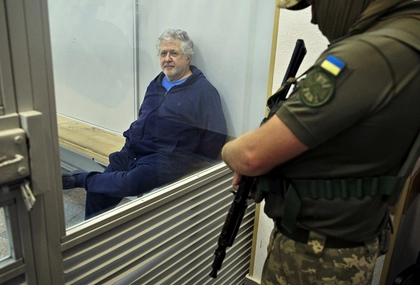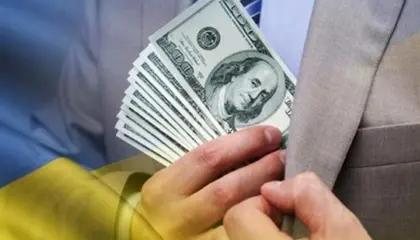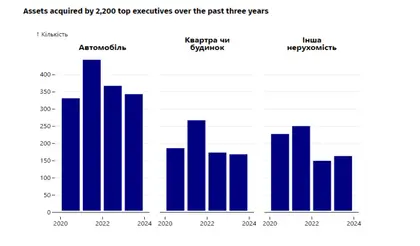Every year, the anti-corruption public organization Transparency International (TI) publishes a report ranking countries according to the state of corruption. The latest (2022) report was published on Jan. 31. On a scale from 0 “highly corrupt” to 100 “very clean”, Ukraine scored 33 points – an improvement by one point on the previous year. In the rankings, Ukraine is positioned at 116 of 180 countries.
JOIN US ON TELEGRAM
Follow our coverage of the war on the @Kyivpost_official.
You can read more from Kyiv Post on Ukraine’s result here, including a summary of four measures proposed by TI for improving corruption in Ukraine. Further analysis of Ukraine’s position can be found directly on TI Ukraine’s website here.
It should be noted that high-profile corruption investigations beginning in January have not been factored into the latest results and analysis for Ukraine, but will be reflected next year.
How Ukraine fights corruption
Ukraine has several bodies that are responsible for preventing corruption in higher authorities. For example, the National Agency for the Prevention of Corruption (NAPC) checks the declarations of officials. The National Anti-Corruption Bureau of Ukraine (NABU) investigates the cases of corrupt officials. And the Specialized Anti-Corruption Prosecutor's Office (SAPO) supervises the observance of laws during operational investigative activities as part of pre-trial investigations.

Kolomoisky Suspected of Paying to Have a Man Killed
All of these bodies have been created during the last eight years. According to TI Ukraine, it was they who have helped reduce the level of corruption in the country.
“The trends are obvious. They show that over the past 10 years, Ukraine has made a significant leap forward. Many reforms were [put to a vote] and supported. Over the past 10 years, Ukraine has gained eight points. It may not seem like enough, but we are among 28 countries that have improved the most when we talk about the fight against corruption,” explained Kateryna Ryzhenko, deputy executive director of TI Ukraine.
Ukraine started to create and bed in an anti-corruption system after 2014, following the Euromaidan events, the beginning of the Russian-Ukrainian war in the east of Ukraine and, of course, the toppling of Viktor Yanukovych’s presidency. Many top officials were sentenced during this time. However, according to StateWatch founder Oleksandr Lemenov, it is almost impossible to objectively measure the level of corruption in the country.
“We only have subjective opinions based on what we see… We see proceedings that are being investigated, but for some there is also huge opposition, for example in the case of Oleh Tatarov. By way of conclusion, we are moving in the right direction, but very slowly,” Lemenov said.
Another problem highlighted by Lemenov is that the two most important bodies in the anti-corruption structure – SAPO and NABU - have been without permanent heads for a long time. Moreover, NABU still has no director.
“It’s been 10 months since NABU last had a director. There are people who fulfill his powers, but this is not the same as a full-fledged leader. It is very good that SAPO was elected in the summer because it means cases continue to be investigated where they might otherwise have stood still” Lemenov asserted.
From July 28, 2022, Oleksandr Klymenko became chief anti-corruption prosecutor. As for NABU, President Volodymyr Zelensky announced last week that a new director will be appointed in the coming days.
It is worth noting that changes in the anti-corruption system, in particular the fast appointment of leaders, is one of the European Union’s main conditions for granting Ukraine candidate status of the EU. In addition, there is a demand for "invigoration of effective investigations and court verdicts.” The European Commission will assess the fulfillment of all of these requirements at its own discretion.
According to Lemenov, it was this demand, as well as Russia’s full-scale war in Ukraine, that formed the “sail” that really accelerated anti-corruption processes – in particular, the investigation and detention of officials.
You can also highlight the text and press Ctrl + Enter






